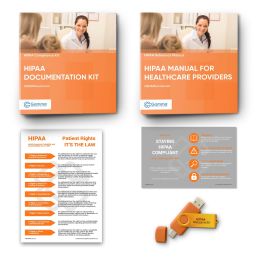Navigating Confidentiality and Parental Involvement in Adolescent Healthcare: A Case Study
Healthcare providers who work with minors often face the delicate balance of respecting patient confidentiality while maintaining open communication with parents. This balance is especially challenging when sensitive issues such as STI testing and follow-up care are involved. In this blog post, we’ll explore a scenario that touches on confidentiality, parental involvement, and the legal considerations that guide these decisions in Oregon.
The Scenario: Confidentiality and Parental Involvement
In this particular case, a 16-year-old male patient established care with his mother present. During his second wellness visit, the Oregon-based healthcare provider asked the patient if he would prefer his mother to remain in the room, given the sensitive topics that would be discussed. The patient chose to have his mother leave during the conversation about sexually transmitted infection (STI) testing.
After the visit, the healthcare provider reviewed the patient's previous lab results and noticed that additional follow-up labs were necessary for non-STI-related issues, including the potential for prediabetes. The healthcare provider now faces a dilemma: Is it okay to discuss the need for further lab tests and other lab results only with the patient, or should the mother be included in the discussion?
This situation becomes more complicated when considering the professional relationship with the mother. The healthcare provider does not want to undermine this relationship by excluding her from discussions about the patient's overall health, especially since any dietary changes related to prediabetes will likely involve the mother as the primary cook in the household.
Legal Considerations: Oregon Law and HIPAA
The legal framework in Oregon, along with federal regulations such as HIPAA, offers guidance on how to approach this situation. Oregon law provides specific statutes on minors' consent to care:
- Oregon Statutes 109.640(4)(a) allows minors aged 15 and older to consent to medical diagnosis and treatment without parental consent. This includes care provided by a licensed physician in Oregon.
- Oregon Statutes 109.640(3) specifically permits minors of any age to consent to reproductive health care, which includes STI testing.
- Oregon Statutes 109.650 clarifies that physicians may inform a minor’s parent about care, diagnosis, or treatment without the minor's consent, but they are not required to do so.
Regarding parental access to health records, the HIPAA Privacy Rule indicates that a parent may not be considered a personal representative of the minor if the minor has given consent for care and parental consent is not required. In this case, because the 16-year-old consented to STI testing, the parent does not automatically have access to the STI test results unless the provider chooses to disclose them.
However, HIPAA allows for parental disclosure if state law permits it. In Oregon, healthcare providers have discretion regarding whether to inform parents about STI results or other medical issues unless specific circumstances, such as abuse or emancipation, are present.
What Does This Mean for the Provider?
Given these legal frameworks, the healthcare provider has some important decisions to make:
- STI Testing and Results: Since the 16-year-old consented to STI testing, the provider has no legal obligation to share the results with the mother. The provider can choose whether to discuss the STI results with the parent, but this is at the provider’s discretion under Oregon law.
- Follow-Up Labs: The need for additional follow-up labs, including concerns like prediabetes, is a non-sensitive health issue that could be discussed with both the patient and the mother. However, if the provider chooses to discuss the follow-up labs during the same visit as the STI test results, the patient’s consent to STI testing extends to the decision regarding follow-up care. In this case, the provider would not be required to involve the parent in the conversation, though it remains a discretionary decision.
- Confidentiality Policy: It is essential for the healthcare provider to have a clear confidentiality policy that is communicated to the minor patient prior to consent for testing or treatment. This policy should address the patient’s rights regarding the privacy of their health information and any related financial responsibilities. If the minor is covered under the parent’s insurance, the provider should inform the patient about the need to complete the Oregon Request for Confidential Communication form to ensure that communications about the STI testing are sent directly to the patient, not the parent.
- Maintaining the Parent-Provider Relationship: Even though the provider is not legally required to disclose certain information to the parent, it’s important to consider the professional relationship with the mother. The provider may choose to involve her in discussions about the minor’s overall health, especially when addressing the dietary changes that may be necessary for managing prediabetes. This approach can help maintain trust and transparency with the family, as long as it’s handled with care.
Conclusion
Healthcare providers have the discretion to decide how to handle confidentiality and parental involvement when treating adolescent patients. In Oregon, minors aged 15 and older can consent to STI testing and other medical treatments, and parents do not automatically have access to their child’s health records unless the provider chooses to disclose them. At the same time, providers must be mindful of the delicate balance between respecting the minor’s privacy and maintaining a positive relationship with the parent.
Ultimately, the provider should communicate the confidentiality policy to the patient, consider the context of the parent-child relationship, and use professional judgment to decide whether or not to involve the parent in discussions regarding lab results and follow-up care. By handling these situations with sensitivity and professionalism, providers can ensure that both the minor patient’s rights and the family’s needs are respected.








